Cook and eat with locals when you travel!
I cooked and ate with Ozlem in Chania, Crete, thanks to Traveling Spoon, a company that connects travelers with locals. All over the world.
In May 2024, I wrote about an experience cooking and enjoying lunch with the ever wonderful Nell Nelson in Edinburgh, Scotland, thanks to a company called Eatwith. This fall, I enjoyed cooking and eating lunch with Ozlem in Chania, Crete, thanks to Traveling Spoon.
These experiences were gifts: travel moments that literally put you into the homes and experiences of people living in the place you are visiting. If you want to “go deeper” when you travel, this is how.
Here’s my experience in Crete with Ozlem.
Ozlem welcomed me into her “she-cave”.
Actually it was a one bedroom basement apartment/office, located in a neighborhood of small apartment buildings. It was a short walk from the historic center of Chania, where I was staying in a restored mansion-turned-boutique hotel. Chania is known for its gorgeous beaches, its 5000 year history and its amazing food. (Come on! a 5000 year old history is pretty incredible!)
It was lunchtime. The apartment had that warm slightly humid feel of a simmering stew. The small kitchen was tucked in a corner the small apartment. Ozlem told me the cabinets were from Ikea. I instantly felt we shared a common experience: shopping at Ikea.
I was here to cook and eat and hear stories about Chania. It was a great 3 hours.
I connected with Ozlem through Traveling Spoon, a young company that connects curious travelers with local, vetted hosts to share a homemade meal. It is sometimes described as an AirBnB for foodies.
A Traveling Spoon experience is like having the chance to visit a foodie friend-of-a-friend in their own home while you are on a wonderful trip. It’s an opportunity to pick up some cooking tips while sharing cultural and culinary traditions. It’s a way to make friends and have more authentic, less touristic experiences while traveling. I love it.
Ozlem made me feel comfortable immediately. As a welcome, she had Greek coffee bubbling on the stove. Traditional Greek coffee is thick and a little gritty, as the coffee is served with the finely ground coffee beans. The grounds slowly sink to the bottom as you sip the coffee. It looks a little like hot chocolate. I tried to drink it but I just couldn’t – way too thick and way too bitter for my Starbucks-oriented tastes.
Ozlem shared her personal story.
Food in Crete is very different than food in mainland Greece. Part of the reason is the geography of the island and part of the reason is history.
Ozlem’s family, like many others, were a part of the forced “population exchange” between Turkey and Greece in the 1920s. That’s when a mutual agreement to end the Turkish-Greco war resulted in both countries mandating that their long-time immigrant/ethnic/religious populations “go back where they came from”. People were forced to return to a land that they didn’t know, bringing with them nothing but “their memories”. So, according to Ozlem, “they made the food they remembered”. And that’s why Cretan food is a mixture of Turkish and Greek.
I ate goat! Didn’t think I could. But I did.
If you come to Crete and want to eat a burger – forget about it. There are no cows on Crete because the land is mountainous and dry. Instead there are goats and sheep. Lots of them. Hence lots of lamb and goat in the food.
The food leans to vegetables, particularly greens.
“Cretan food is so simple. There are no recipes or rules, apart from family traditions. What's important is to know exactly where your ingredients come from.” (Marianna Leivaditaki, Cretan chef at Morito, in London)
Ozlem and I made Stifabo, a traditional Greek goat stew, light on meat and heavy on greens, with an undertaste of cinnamon. Stifabo is the traditional “Sunday Supper” on Crete. It’s what made the apartment smell so delicious when I walked in - this fragrant mixture of cinnamon and oregano and bubbly wine and water, a smell that appeals to the soul as well as taste buds.
Click on this link to see a slightly Americanized version of the stew I plan to make for a Sunday supper in the not to distant future. It’s from the Mediterranean Dish website.
If you ever get to Crete, stalk the staka!
We put a dangerously additive topping of Staka on the stew.
Staka is a unique mixture of goat’s milk cream, cooked until it oozes like butter, with flour to thicken it up. It’s an edible roux: rich and fatty, with a taste somewhere between cream cheese and sour cream, but not quite either. The taste transcends anything that it goes with. And it goes with anything eggs, rice, soups, stews, pies, bread. I’m desperately trying to figure out how to get it because, as I said, it’s addictive and I succumbed to the addiction.
And then there are the olives
Greece is the 3rd largest producer of olives in the world, behind Spain and Italy. 30% of Greece’s olives come from Crete.
Ozlem told me that everyone who owns land on Crete grows olive trees. Some people might have a small backyard with 3 or 4 trees; others have 100 acres full of trees. Everyone makes the own olives and their own olive oil. Smaller producers take olives to community centers where they can press the olives and make oil.
This is an olive-lovers dream because all the olive oils and table olives taste a little bit different. They are fun to try.
Next time I go to the grocery store, I am going to search out olive oil from Greece!
Here’s what the final feast looked like:
If you want to eat with a local when you travel:
Take a look at Traveling Spoon. Their motto: Travel off the Eaten Path.
Here’s how to reach Ozlem: https://travelingspoon.com/hosts/18788-turkish-or-cretan-cooking-in-chania-with-a-local-chef.
If you want to experience the joy of travel without leaving your own home, Travel Spoon offers on-line cooking classes with their hosts around the world.
If you ever go to Crete, here are two other recommendations for you:
Check out Casa Del Fino, a small luxury boutique hotel.
Want a beach-side restaurant walkable from the center of Chania, Crete with a Miami vibe. A contemporary take on Cretan specialities. Try Maiami.
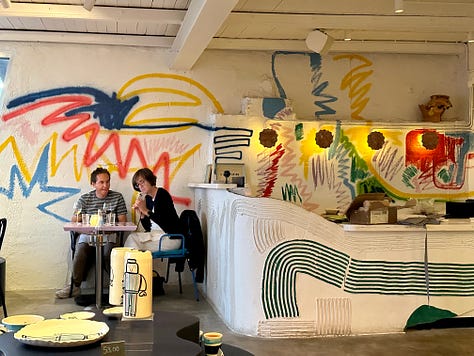
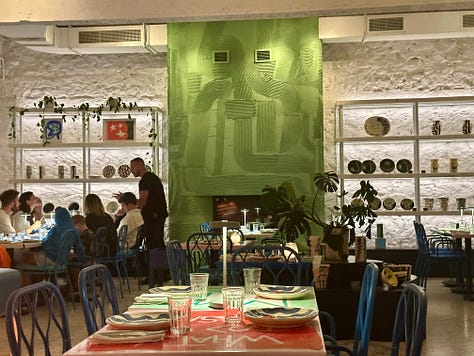
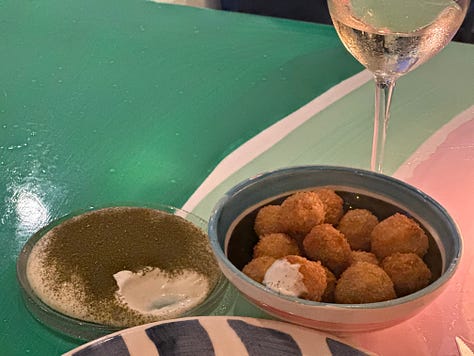



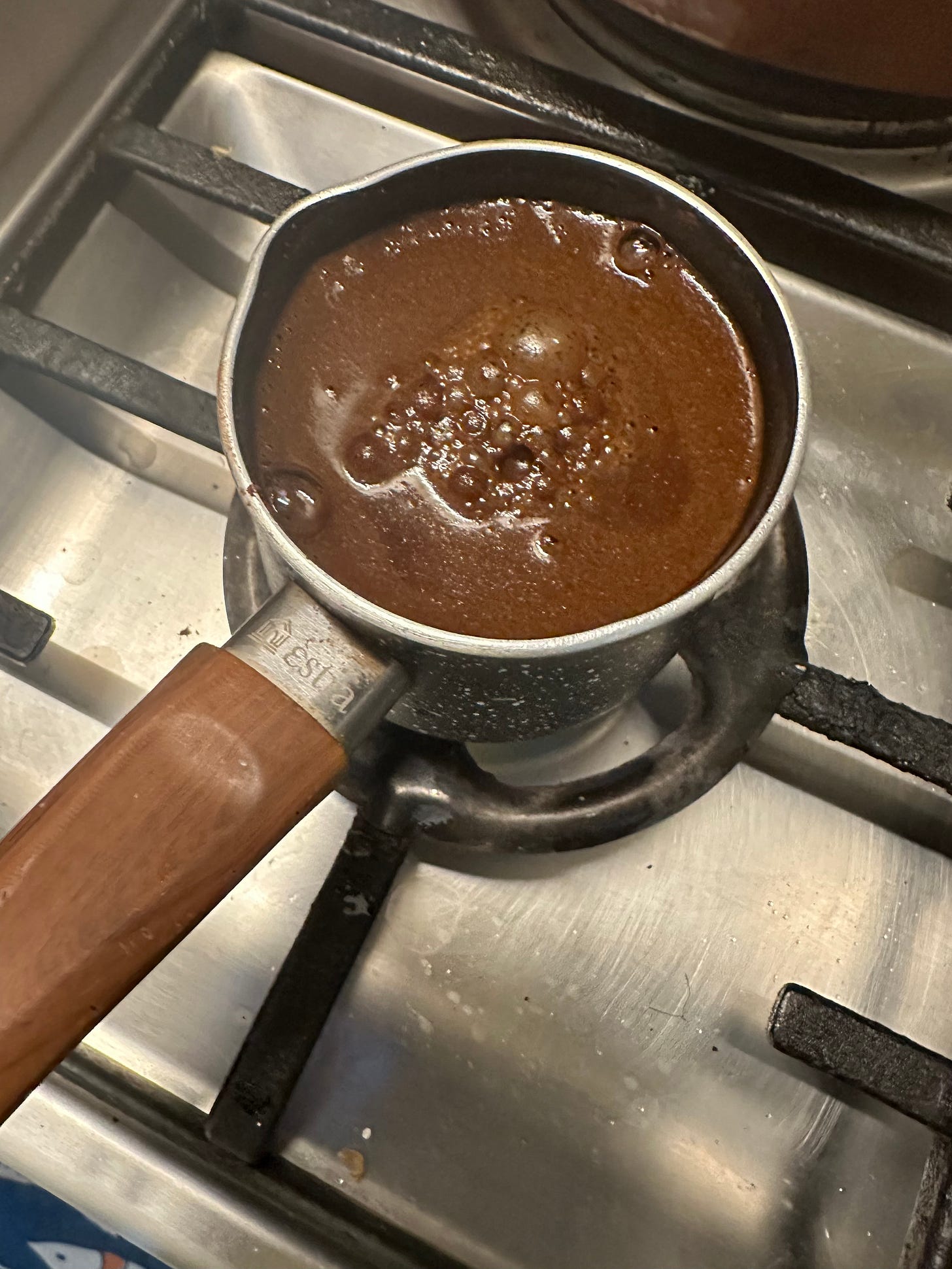


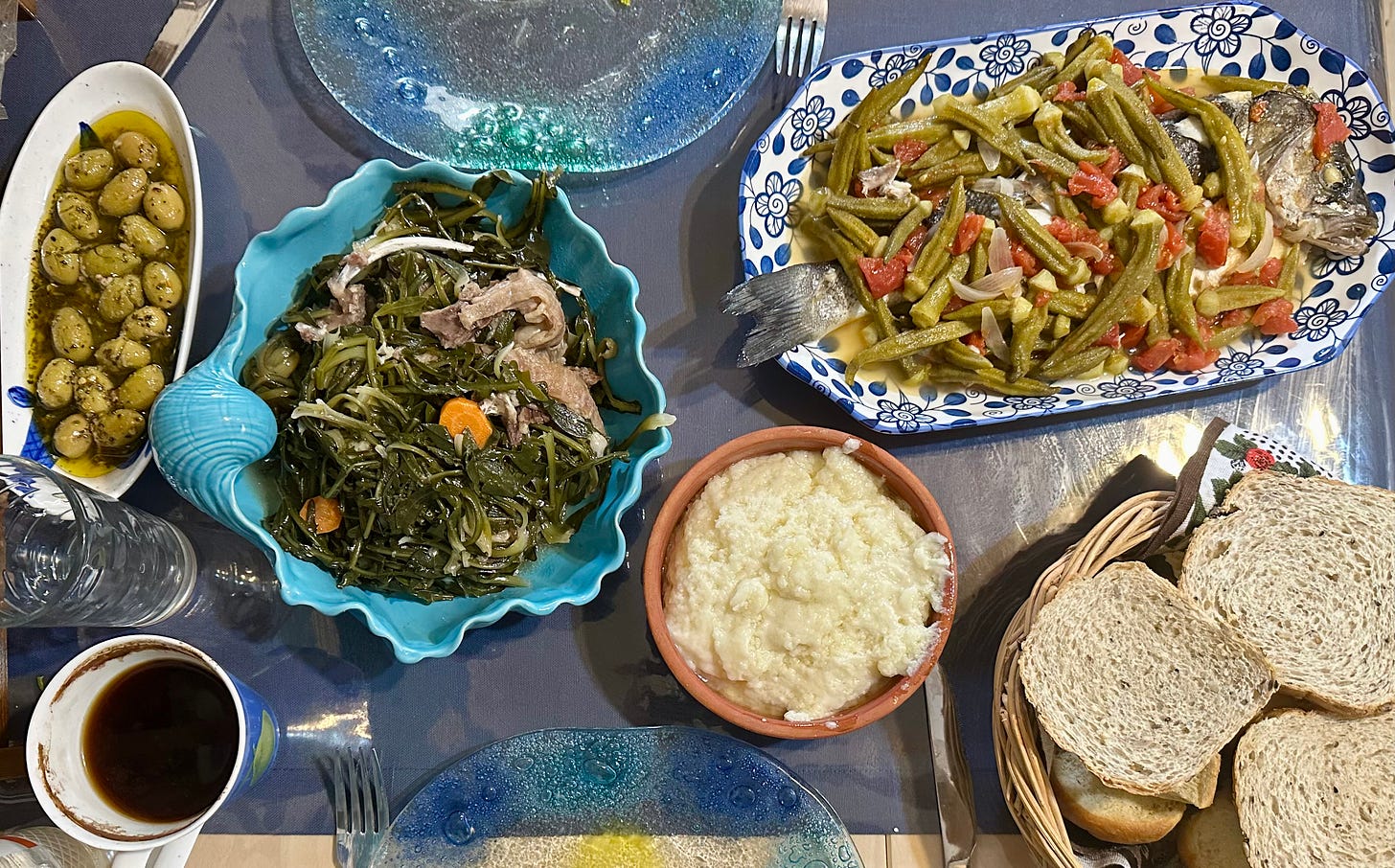
Savored each word of your post, Anne! DEFINITELY doing this in my next travels.
*And thanks for the piece of Greek/Turkish history!
Oh! My! What a great experience. I really liked reading the whole blog especially the history of the end of Turkish /Greek conflict. Very interesting. Food, not so much.